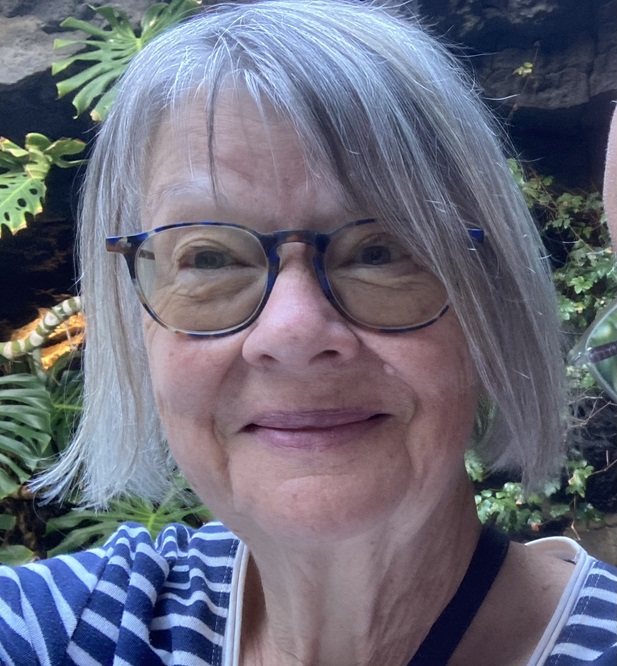Welsh capital celebrates French connection

Ted Peskett, local democracy reporter
People who are celebrating the Cardiff’s deep rooted connection with a major French city have opened up on their life changing relationship with the country.
This year, Cardiff is marking 60 years of its official twinning with Nantes, in Pays de la Loire, north west France.
Connections between the two cities are all around the Welsh capital if you know where to look for them, from Boulevard De Nantes – the street between Park Plaza and City Hall which was so named after the official twinning – to the numerous exchange groups that exist.
However, the relationship goes back much further, with historical documents showing that there was a lucrative coal and timber trade between the two cities as far back as 1729.
Coal trading
Nantes was much bigger than Cardiff back then, but the Welsh town soon soon started catching up – especially in terms of its population, which boomed during its time as one of the most significant coal trading ports in Europe during the late nineteenth and early twentieth century.
As well as offering a chance to reflect on the deeper historical ties between the two cities, this year also marks the 70th anniversary of the first official exchange of school pupils between Cardiff and Nantes which resulted in friendships and links that remain to this day.
Cardiff was a very different place in 1954 when David Judd welcomed his exchange partner, Eric Tertrais, to his home in Gabalfa.
“When we went down to pick up our exchange pupils… there was the group of 40 French school kids and some teachers outside Cardiff station and there as one boy in plus fours… and that was my boy, Eric,” said David, 85.
He said one of the trips Eric was taken on during his stay was a drive up to Brecon – a “major trip” as far as David, who hadn’t ventured much outside of Cardiff, was concerned.

David’s own trip to stay with Eric’s family in France was his first abroad and offered a window into another world.
He said: “It wasn’t that long after the last war, really.
“I can remember Saint-Nazaire, half of it was still flattened as we drove through and there were signs like ‘Yanks go home’.
Great excitement
The trip was a great excitement to the then 15-year-old boy, brought up in what he described as a lower middle class household, as he was whisked away from Nantes to the Tertrais’ holiday home in Saint Marc sur Mer – an old German blockhouse.
The area is also known as the location where 1953 French comedy, Les Vacances de Monsieur Hulot, was filmed.
David said the Tertrais family was well known in the area, having made its fortune in the canning industry, and that he was instantly made to feel at home.
He added: “I was really well looked after there. His mother was absolutely wonderful.
“I had no shorts or summer wear or anything like that and she took me out straight away and bought me some clothes for me to wear at the beach.”
David described himself as a “lost soul” to begin with, having been separated from his Cardiff friends, but he soon found himself enjoying the time spent with Eric’s family.
The trip had such an impact that he returned to France multiple times over the years, including on his honeymoon.
David said: “I developed more after I’d been to France I think than before I went.
“At the time you think it is a fantastic adventure, but it does change you and it changes your life having that experience.
“You are looking for different things I suppose and it created in me and my family now a huge love of France and we go back there very regularly.”
Francophile
Such is the impact of David’s French visits that his daughter lives in Lyon and his son is a fellow Francophile.
On a trip David took with his son to France some years ago, he tried to reconnect with an old friend he made whilst travelling around France at the age of 17.
On enquiring about Jaqueline Le Berigot at a cafe in the town of Sarzeau, David said some of the customers there were “hugely amused” by his efforts, which sadly proved to be fruitless.
“A wacky thing to do, I know, but it was interesting,” he said.
David said he now has an urgency to reconnect with old friends from his early visits to France, having also found out that his old exchange partner, Eric, died in 2016.
He did manage to make contact with Eric’s brother, Regis, who is now in his 80s, and they plan to meet up on David’s next trip.
They have not seen each other since David’s first exchange trip 70 years ago.
Cardiff and Nantes exchange groups over the years have been numerous and varied, ranging from tennis, cycling and choir groups to groups for diabetics and post office workers.

One member of the Association for the Cardiff Nantes Exchange (ACNE), John Cranwell, said he got involved with the language exchange group when he moved to Cardiff in the 1970s.
He decided to pick up French after moving to the city in order to meet new people and it wasn’t long before he had his first exchange trip and was thrown into a totally different learning environment.
Total immersion
John, 75, said: “It was a complete shock because it was total immersion.
“My French was very basic and everyone there spoke French.
“I really had very little idea of what was happening and just followed everybody else around and gradually I began to learn a few things.”
Not only did he rapidly improve his French, but John also made a number of long lasting friendships over the years.
John added: “It is not an exaggeration to say it has been a life changer for me.
“Speaking French in a classroom is one thing, but in some ways being thrown in at the deep end gave me a huge amount of confidence.”
He said he would like to see more people getting involved with twinning and that it can provide a different perspective on a country to what you would get if you were visiting as part of an ordinary holiday.
“Anybody now can go on holiday,” he said.
“We don’t necessarily get a connection with the people who live there.
“You don’t get to stay in their homes, you don’t get to speak the language with them, you don’t get to hear the rows between mothers and their teenage children.”
Open
Reflecting on the 60th anniversary of Cardiff twinning with Nantes, John said: “I think [the twinning] does make Cardiff a more open city and a city that is more aware of what is happening elsewhere.
Exchanges between Cardiff and Nantes seem to be going as strong as they were when ACNE was set up more than 40 years ago.
However, it’s future was thrown into uncertainty following the Covid-19 pandemic.
Chair of ACNE, Maggie Smales, said: “We weren’t absolutely sure how easy it would be to revive.
“One of the problems with going back after the pandemic was because we are a largely older group I think quite a few people were nervous about travelling.”

Maggie, 73, said that last year, the group was originally going to travel with 18 people when the ideal number to take is 23 or 24.
The differences in travel regulations between the UK and France at different points also made it difficult to arrange trips during the Covid-19 pandemic.
However, Maggie said Zoom calls during this period “kept things alive when we couldn’t see each other in the flesh”.
This year the Cardiff contingent is travelling with 23 people and the French group, Echanges Linguistiques Adultes Nantes Cardiff (ELANC), who will be visiting later this month will be travelling with 25.
Maggie moved to Cardiff 10 years ago, but she has her own long-standing connection with France having also travelled there as part of an exchange in her teenage years.
She said the experience “really opened the world to her” and thinks exchange projects and twinning groups should be encouraged more.
Twinning between towns and cities in the UK and those in continental Europe developed more after the Second World War as a way of rebuilding international ties.
Maggie said she felt the study of modern languages was also encouraged more after the war for similar reasons, but is worried it is not being pushed as much anymore.
She said: “Any language just opens up another culture.
“It opens up opportunities and I think we have begun to lose that for young people and I think it is a shame.”
Brexit
She also described Brexit as a “blow”, adding that it “has made everything much more difficult”.
She said: “We can’t get away from that.
“I think it has always helped with trade relations, informal links used to be much easier.
“If someone wanted to spend a couple of months in Cardiff improving their English, that kind of thing used to be really easy to fix and now you can’t.”
It hasn’t put off the excitement surrounding this year’s visit though and Maggie said she wants to introduce the city’s French guests to experiences they wouldn’t normally have if they just visited as tourists.
As well as being provided with a tour of Cardiff Docks, the Nantes contingent will visit the city’s less well known Greek Orthodox Church which was founded in 1873.
Outside of Cardiff, they will visit the National Botanical Gardens, Margam Abbey and Penderyn Distillery – chosen on special request from the Nantes group, according to Maggie.
The visit will take place from Saturday, April 20 to Saturday, April 27.
A celebratory dinner will be held at Cardiff Gold Club on April 24, where members of various exchange groups, including some from the original exchange of pupils from 1954, will share an evening of music and maybe even some Breton dancing “if we are really lucky”, said Maggie.
Yma o Hyd
She added: “We are going to be singing Yma o Hyd which [the Nantes contingent] are convinced is the Welsh national anthem… anybody can sing the chorus and they were very enthusiastic last year.”
“It is relatively phonetic and so they did sing along and they seemed to particularly enjoy it.”
At a civic level, Cardiff Council said the connection between Nantes and Cardiff “remains strong”.
The local authority has a European officer who liaises with her Nantes counterpart and manages the twin-city relationship, as well as the links between Cardiff and its other ‘twins’.
Cardiff Council’s leader, Cllr Huw Thomas, said: “It’s very important that Cardiff has good relations with all its twinning partners around the world and the council believes there is much to gain from having good cultural and business links with all our twin cities.
“Our links with Nantes go back centuries, of course, when it was involved in the coal and wood trade with Cardiff, and those links continue to this day, as I saw at first hand when I went to France on an official visit last year.”
Stuttgart is another European city that Cardiff has an official twinning arrangement with, and next year will be the 70th anniversary of the link between the two.
The lord mayor of Cardiff, Cllr Bablin Molik will attend the celebratory Cardiff-Nantes twinning dinner this month along with other dignitaries from Nantes and Cardiff, the Societe Franco-Britannique and the Club de Francais.
Support our Nation today
For the price of a cup of coffee a month you can help us create an independent, not-for-profit, national news service for the people of Wales, by the people of Wales.







Naoned/Nantes is in Breizh/Brittany, not this bureaucratic, wiggly line on a map that is called Pays de la Loire. Nantes has been torn away from the region of Brittany by that idolator of muscular centralism which is the French Government, for the purpose of weakening the region of Brittany should it ask for any devolved powers, or more. There is a movement for the return of the département of Nantes to Brittany, where Nantes is considered the real (yet not de jure) capital. The Welsh capital is twinned with another Brittonic capital, not just a French city. (Though, to be… Read more »
Yes, that was always my assumption, namely, in order to create a link between two Brythonic Celtic capitals.
Not once could I see the name ‘Brittany’ in this article?!
For years, I have been wondering if Cardiff was really twinned with Nantes, because the Breton city seems to be so invisible in the Welsh capital, (almost no popular events). I use to tell myself that it would have been better if Rennes would have been twinned with Cardiff, it is less ‘bourgeois’ and more dynamic regarding the Breton culture…
I think you will find that the links between the Loire and Ynys Mon go back a lot further…